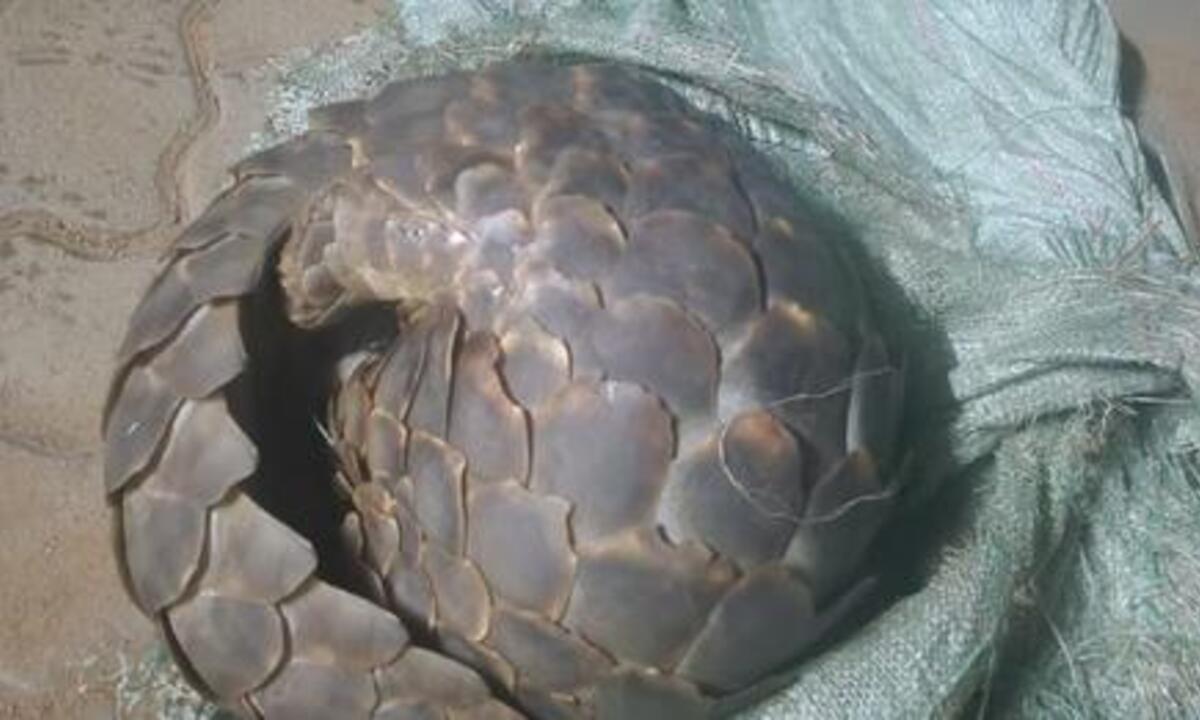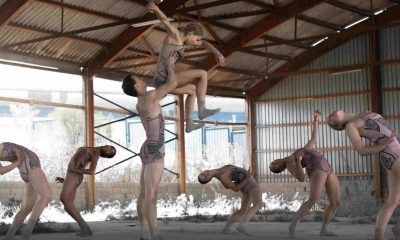News
Increase in Pangolin Trafficking and Associated Arrests

Multiple arrests have recently been made concerning pangolin trafficking in operations carried out in Gauteng, Free State, and Mpumalanga. Last week, Professor Ray Jansen, a founding member of the International Union for the Conservation of Nature Pangolin Specialist Group, and his partners conducted a sting operation in Midrand, rescuing a trafficked pangolin as reported by The Citizen.
This particular pangolin marks the 12th rescue this year, although its condition remains critical, raising doubts about its survival. Kim da Ribeira, the director of South African Citizens Against Rhino Poaching, expressed concern over the increasing incidence of pangolin trafficking.
Da Ribeira pointed out that poachers and traffickers typically do not limit themselves to a single species and often employ similar methods to target other animals. For example, Captain Tlangelani Rikhotso, spokesperson for the Hawks in the Free State, reported that four suspects, aged between 29 and 45, were apprehended in Mahikeng last week while attempting to sell two pangolins for R200,000.
Also Read: Calls for urgent intervention in Emfuleni amid late salary payments
Rikhotso also mentioned that on June 2, four suspects aged between 43 and 59 were arrested in Vryburg for possessing a pangolin. She stated, “It is alleged that the suspects were heading to Mahikeng to meet a buyer for a pangolin that they were selling for R60,000 when they were stopped by members of the Hawks’ Serious Organised Crime Investigation and members of Saps [SA Police Service] Tactical Response Team along Vryburg Road.”
In Mpumalanga, 16 suspects arrested during the Blood Orange operation appeared in the Mbombela Commercial Crimes Court last week. They faced money laundering, corruption, conspiracy, and contravention of section 57 of the National Environmental Management: Biodiversity Act, which relates to dealing in rhino horns.
Colonel Katlego Mogale, a spokesperson for the Hawks in Mpumalanga, stated that the suspects, including two former field rangers and their family members, were arrested following an investigation by a multidisciplinary team known as Project Blood Orange. The team comprised KPMG, the SA Revenue Service, and the Financial Intelligence Centre. The case against the 16 suspects was postponed to October 25 for the final auditors’ report and pre-trial conference.
Last month, Minister of Forestry, Fisheries, and the Environment, Barbara Creecy announced that the department was intensifying efforts to combat rhino poaching and related wildlife crimes in the Hluhluwe-iMfolozi game reserve by providing support to Ezemvelo KwaZulu-Natal Wildlife. She also mentioned that the department would invest R40 million to improve the reserve’s boundary fencing.
Dr Witness Maluleke, a criminologist, highlighted the common occurrence of poaching of endangered species and plants in various South African national parks and rural areas. He explained that subsistence and commercial poaching often served local communities’ food and medicinal needs but also involved greed and the mass killing of wildlife associated with international illegal trades.
Maluleke emphasised the complexity of poaching as a crime, involving different operations such as setting snares and traps and employing other sophisticated methods to capture animals. Poachers are often heavily armed. Criminologist Prof Jaco Barkhuizen noted that poaching in South Africa has an international criminal component, which has exacerbated a struggling economy and increased crime rates. He expressed sadness over the significant market demand outside South Africa for abalone, pangolins, and rhino horns, resulting in the loss of numerous species due to human behaviour and criminal activities.
Also Read:
Follow us on Google News
Photo: Facebook / @The Citizen News






















